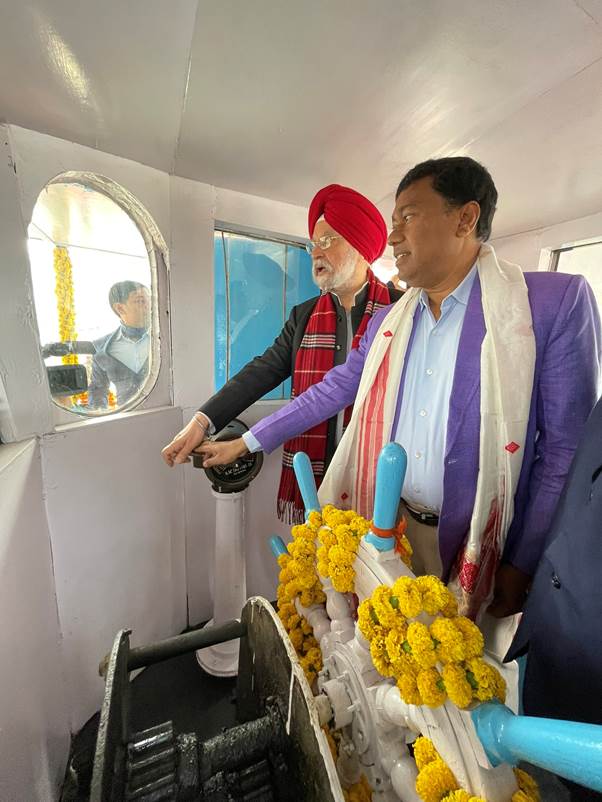
By Our Correspondent
NEW DELHI/BHUBANESWAR: Union Minister of Petroleum and Natural Gas, Housing and Urban Affairs, Government of India Shri Hardeep S. Puri on Tuesday ceremonially inaugurated the demo-run of Inland Water Vessel powered by Methanol blended Diesel (MD15). Union Minister of State for Petroleum and Natural Gas , Labour and Employment , Government of India, Shri Rameswar Teli was also present on the occasion.
The boat ride was done on a 50-seater motor launch marine vessel named ‘SB Gangadhar’. The marine vessel is equipped with two Ruston make diesel engines (each engine of 105 hp). The boat will be run on MD-15 (15% methanol blended HSD).
Methanol is a low carbon hydrogen carrier fuel produced from high ash coal, agricultural residue, CO2 from thermal power plants and natural gas. It is the best pathway for meeting India’s commitment to COP 21.
Although slightly lower in energy content than petrol and diesel, methanol can replace both these fuels in the transport sector (road, rail and marine), energy sector (comprising DG sets, boilers, process heating modules, tractors, and commercial vehicles) and retail cooking (replacing LPG [partially], kerosene and wood charcoal).
In an interaction with media today, the Minister informed that “In Assam, Assam Petrochemical Limited (APL), Namrup currently produces about 100 TPD of Methanol and is implementing a new project for production of 500 TPD of Methanol.” He further added that, “work is in progress to set up Coal-to-Methanol plants in the country using indigenous technology, which is being developed by BHEL (Hyderabad and Trichy), Thermax, and IIT Delhi.”
NITI Aayog’s ‘Methanol Economy’ programme is aimed at reducing India’s oil import bill, greenhouse gas (GHG) emissions, and converting coal reserves and municipal solid waste into methanol.
Methanol is a cost-effective alternative marine fuel. It is less costly than other marine fuel and is economical in terms of developing the shoreside storage and bunkering infrastructure. The cost to convert vessels to run on methanol is significantly less than other alternative fuel conversions with no need for expensive exhaust gas after treatment and as a liquid fuel, only minor modifications are needed for existing storage and bunkering infrastructure to handle methanol.
Blending of 15% methanol in gasoline can result in at least 15% reduction in the import of gasoline/crude oil. In addition, this would bring down GHG emissions by 20% in terms of particulate matter, NOx, and SOx, thereby improving the urban air quality.




























